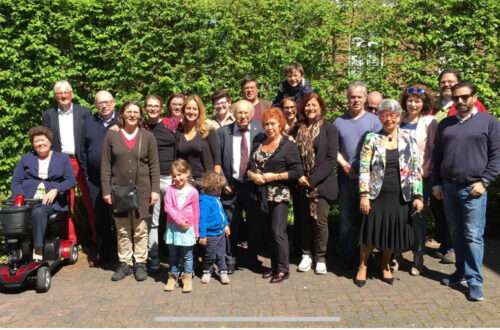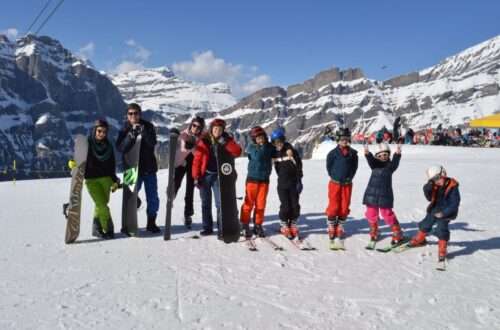From one Habo to another: Being proud of being unique
I vividly remember the first time I met Rebecca. I was on board the bus from Tel Aviv to Sderot, to begin my year at Mechinat Nachshon as another scared young chulnik, with terrible Hebrew and no real experience living in Israel. At some point, I overheard an accented English voice mention Habonim. My ears perked up, I leaned towards the conversation and met Rebecca.
Even though we drifted apart since Mechinah (I returned to America while she stayed in Israel), I’ve still always felt that we remained very similar. Of course, that mechinah year gave us a strong shared identity — we were both chulnikim/ot, both Habonim alumni. But there was always something more that drew me to her. I remember once Rebecca told me something along the lines of: “I like being a bit of an outsider – it allows me to see things from a unique perspective.” In both America and Israel I’d always (and still do) felt like an outsider. Until then, I was too scared to admit, let alone take pride, in that difference. Rebecca changed that for me — not only with her insight but also with her dugma ishit (“personal example”, a Habonim phrase we both loved). She was proud to view the world uniquely — and helped me realize that I was too.
I last saw Rebecca in January 2019. I was visiting Israel for a few weeks and she had a day off from the army so we wandered around Tel Aviv and talked — about life, books, and our futures. I remember us passing Halper’s Books on Albeny street and talking about what languages we were reading most in — English, Dutch, or Hebrew. We probably also talked about Habonim and I doubtlessly urged her to spend a summer at a North American machaneh (camp) after the army, as I frequently did during mechniah. It was only after she got sick that I learned that my encouragement somewhat worked — and she had become an HDNA workshop madricha. Even better, one of her chanichim came from my former machaneh.
Rebecca’s impact on my life was far greater than a mere 10 short mechinah months would suggest. I’m proud to carry on the lessons she taught me — and in turn, teach them to others. Madrich mudrach as we say in Habonim — to guide, to be guided. It was an honor to learn from her. It’s an even greater honor to teach what she taught.
זכר צדיקה לברכה
Zach Harris
Chicago


